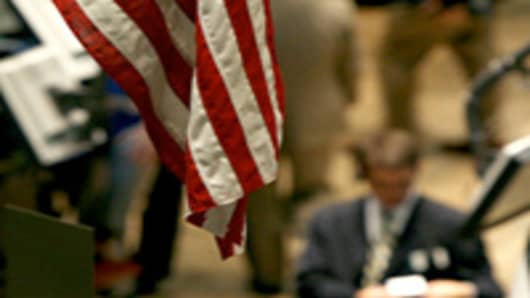The strongest level of initial public offerings in two years has given more ammunition to those who think the stock market rally is for real.
After a year of virtually no IPOs as credit evaporated from the market, eight deals worth $3.5 billion are flooding the market this week.
The deals are coming from various sectors and could finally pull the much-lamented sideline cash—$3.5 trillion parked in no-yield money markets alone—back into the market.
And the interest extends beyond those directly involved in the deals and into the realm of analysts and portfolio managers interested in the market's overall behavior.
"Not that I place so many IPOs, but it interests me because it's a very positive sign for the market," says Uri Landesman, head of global growth strategies at ING Investment Management in New York. "We went through practically a year without any IPOs, the reason being because there was no appetite for them. Because these companies and brokerage firms see there's a market, that's very encouraging."
The influx of IPOs—the most in one week since December 2007—marks a significant signpost for the return of risk to the market.
Despite the market's six-month rally that has jacked up the major indexes by more than 53 percent, much of the move came from short-term trading and institutional investors, analysts say.
To be sure, there remains doubt about how much can be gleaned from one week's worth of IPO activity. But the short-term jump at least is encouraging, and the market will be watching closely for signs of follow-through.
"Five companies in one month does not a trend make," says Peter Boni, president and CEO of Safeguard Scientifics, a Wayne, Pa.-based holding company that provides IPO capital. "There's been a lot of cash parked in mutual funds as of late. The appetite for growth and risk versus safety has changed a little."
This week's IPOs will begin pricing Tuesday.
Among the biggest deals on the market:
- Foursquare Capital, $500 million for a real estate investment trust to be run by a unit of money manager Alliance Bernstein. The company will buy toxic assets through government programs.
- A123 Systems, $225 million for the lithium battery maker, which is drawing curiosity because the company is not considered profitable.
- Shanda Interactive, a Chinese media company, is spinning off its Shanda Games unit in a $725 million offering.
How successful the offerings are could go a long way towards assuaging the fears of investors who still aren't convinced by the six-month rally.
"These IPOs want to hit the market while the iron is hot," says Tom Higgins, chief economist at Payden & Rygel in Los Angeles. "That's just a rational response for some of these smaller companies that were delaying IPOs because of financial concerns. You have had pent up demand for capital among these firms."
The deals run from real estate to technology, giving further hope that the rally can stay broad-based and will be fueled by availability of capital.
Early in the market's run-up, investors were wary that much of the momentum came from technical points and the undervaluing of beaten-down companies. Wall Street now is looking for signs of fundamental underpinnings for future growth.
"Clearly most investors are still sacred to death and I would not cite this as a reason to call the market frothy or scary," says Jordan Kimmel, market strategist at National Securities in New York. "It's definitely a sign of a little confidence peeking back, in what I'm calling the second phase of the bull market. The first phase was just a reflection off the bottom, the second being a little more investment confidence."
The influx of IPOs didn't just start this week.
Offerings started picking up in July and since then 33 companies have filed for IPOs against just 11 for the first half of 2009.
And another big one is right around the corner: Insurance industry risk specialist Verisk in two weeks will launch the biggest IPO since last year's $19.7 billion offer from Visa .
While most have risen in value, long-term risks are ever-present with IPOs, and some analysts fear the market is getting ahead of itself with its growing appetite for public offerings.
"Investors are optimistic that the economy has turned and that the Fed has won the battle. I just view that as another reason to be bearish," says Lee Markowitz, partner at Continental Capital Advisors in New York. "The IPO activity is just another sign that people are optimistic and willing to buy prospective returns for the future when they should be quite cautious."
For now, though, the busy IPO climate seems to show that the time could be right to dip back into risk.
"Absolutely it will be an even more bullish sign to get the deals off," ING's Landesman says. "The initial step that they're even trying to bring them to market is a good thing."



